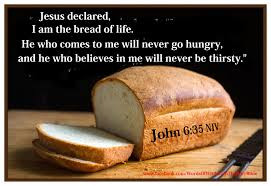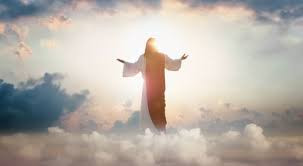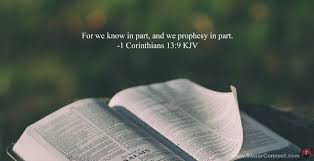
CONTINUED FROM LAST WEEK
The New International Version translators saw fit to alter the prophet’s words by rendering the offensive Hebrew word rah as “disaster” instead of correctly translating it as “bad” or “evil.” The New International Version Bible therefore mistranslates Isaiah 45:7 to read:
by Benny Leon

“I form the light and create darkness, I bring prosperity and create disaster; I, the Lord, do all these things.” The word “disaster” inserted by the New International Version is misleading and purposely ambiguous so that the uninformed reader could conclude that this word refers to natural disasters, such as typhoons, earthquakes and hurricanes. This dubious translation was deliberately forged to conceal the prophet’s original message. As mentioned above, the King James Version correctly translates this verse, and renders the Hebrew word rah as “evil.” One final point is in order. Christians often point to the 14th chapter of Isaiah as a biblical reference to support their teachings of the final and complete downfall of Satan, which brings to an end the long and otherwise successful career of this fallen angel. Castigating Babylonian leaders, the prophet states:
“How you are fallen from heaven, O morning star! You have been cut down to the ground, you who weakened the nations!” (Isaiah 14:12 )
Christians argue that Isaiah’s mention of the fallen “morning star” refers to the ultimate demise of Satan at the end of time, when he will finally be cast into an eternal lake of fire, not as ruler, but as one among many, being tormented day and night forever and ever (Revelation 20:10).
There are, however, two serious problems with this assertion. First, if Christians maintain that the “morning star” is a reference to Satan, how do they explain Revelation 22:16 where Jesus is called the “morning star” as well?
- Chamisa under fire over US$120K donation
- Mavhunga puts DeMbare into Chibuku quarterfinals
- Pension funds bet on Cabora Bassa oilfields
- Councils defy govt fire tender directive
Keep Reading
Secondly, a cursory reading of the 14th chapter of Isaiah reveals that the “morning star” spoken of in Isaiah 14:12 is referring to Nebuchadnezzar, the wicked King of Babylon, and not to Satan. The prophet explicitly names the king of Babylon as the subject of the prophecy.
“That thou shall take up this proverb against the king of Babylon, and say, ‘How hath the oppressor ceased, the golden city ceased!’” (Isaiah 14:4).
Total depravity (also called absolute inability) is a church teaching that derives from the Augustinian concept of original sin. It is a core part of a Protestant theological system which stresses the absolute futility of human action to attain salvation. This doctrine asserts that as a consequence of the fall of man, every person born into the world is enslaved to the service of sin. Accordingly, this doctrine argues that man does not have genuine free will to choose God and faithfulness over sin and iniquity. This idea is contravened by every admonishment contained in the Jewish Scriptures, where God calls sinners to repent:
Therefore tell the people: “This is what the Lord Almighty says: ‘Return to Me,’ declares the Lord Almighty, ‘and I will return to you,’ says the Lord Almighty.” (Zachariah 1:3) “but if ye return unto Me, and keep My commandments and do them, though your outcasts were in the uttermost part of the heavens, yet will I gather them from thence, and will bring them unto the place that I have chosen, to cause My name to dwell there.” (Nehemiah 1:9).
It is difficult to imagine a Christian doctrine that is more alien and hostile to the clear, warm teachings of the prophets of Israel. Uplifting passages that oppose these Christian doctrines appear prominently in every book in Tanach. The message of the Jewish faith is clear: human volition plays the central role in salvation:
“I call heaven and earth to witness against you today, that I have set before you life and death, blessing and curse. Therefore, choose life, that you and your offspring may live.” (Deuteronomy 30:19).
“And if it is evil in your eyes to serve the Lord, choose this day whom you will serve, whether the gods your fathers served in the region beyond the river, or the gods of the Amorites in whose land you dwell.” (Joshua 24:15).
“Turn to Me and be saved, all the ends of the earth, for I am God, and there is no other.” (Isaiah 45:22).
Another thought, if there was no darkness how would we appreciate light? If there was no evil how would we appreciate good, if there was no death how would we appreciate life?
*With acknowledgements to Rabbi Tovia Singer











